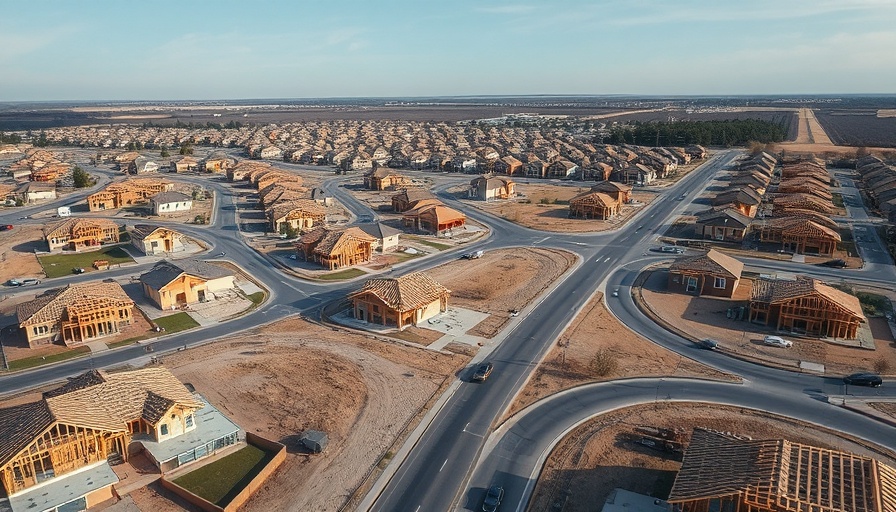
The Role of Developer Donations in Local Elections
As Colorado Springs citizens prepare to make pivotal decisions regarding their city council representatives, the influence of developer donations looms large over the electoral landscape. Campaign finance reports indicate a steady influx of contributions from real estate developers and business moguls, which plays a significant role in local politics. While it may not amount to the political spending witnessed in larger state elections, the impact of these donations in a growing city like Colorado Springs cannot be understated.
Why Developer Donations Generate Debate
A debate has emerged amongst candidates about the ethical implications of accepting donations from developers. Some candidates proudly publicize their refusal to accept financial backing from these interests, framing their position as an ethical stand against potential conflicts of interest. Yet, the prevalent question remains: Are developer donations fueling conflicts of interest in local governance?
Michael Greenberger, Assistant Professor of Political Science at the University of Denver, explains that while campaign donations can correlate with conflicts of interest, the murky waters of ethics often overshadow the black-and-white nature of legality. According to Greenberger, understanding the broader implications requires going beyond mere legal definitions to consider how such donations impact constituents. If money from local developers serves to bolster the quality of life in a bustling district, for instance, it may not resonate as concerning to voters.
Historical Context of Developer Contributions in City Politics
A look back at previous elections unveils a long-standing pattern where developers have shaped the political funding landscape in Colorado Springs. In local elections, the ebb and flow of real estate development has consistently influenced candidate viability. In a city that has seen rapid growth, the relationship between real estate development and local governance becomes increasingly complex. Past elections reveal a trend of candidates prioritizing construction interests over community needs, bringing to light a potential misalignment between elected officials and their constituents.
The Politics of Housing and Growth
Housing developments and urban expansion are critical discussions for residents of Colorado Springs, often hitting close to home—as the value of property represents significant personal wealth. Candidates' commitments to local development can lead to polarization amongst voters. Interests represented in city council decisions carry weight, making it vital for candidates to navigate the delicate balance of promoting growth while safeguarding community interests.
Recent issues raised by City Councilman Dave Donelson concerning potential conflicts involving Weidner Apartment Homes further underscore the importance of transparency in campaign financing. Donelson's own past acceptance of donations from developers underscores the blurred boundaries between campaign financing and public accountability.
Voter Response and Accountability
What does this landscape mean for voters in Colorado Springs? As the elasticity of housing and growth changes, so do the stakes for constituents. Voter awareness is on the rise, with many residents prepared to scrutinize candidate affiliations with developers. While it is crucial for candidates to champion growth and economic development, they must also remain attuned to the voices of their constituents—an increasingly vigilant electorate.
Voter sentiment increasingly sways towards favoritism for candidates who prioritize community consensus over catering to out-of-town developer interests. As the city acknowledges its burgeoning growth, it raises particular questions about who is facilitating that growth—and at what cost.
Future Implications for Colorado Springs Politics
As Colorado Springs continues to grow, the dialogues surrounding developer contributions and their ethical implications will only become more consequential. Will voters take a stand against perceived conflicts of interest, or will they support candidates who promise development without revisiting the established ethics? The future of local governance lies in the hands of the electorate who are becoming savvy to the significance of campaign financing. Whether new growth aligns with community benefit will largely determine the political atmosphere moving forward.
In conclusion, understanding the dynamics at play with developer donations in local elections offers voters a lens to gauge their representatives' integrity. It's an arena where each vote counts—where the influence of money meets the essential voice of community interests.
 Add Row
Add Row  Add
Add 




 Add Row
Add Row  Add
Add 

Write A Comment